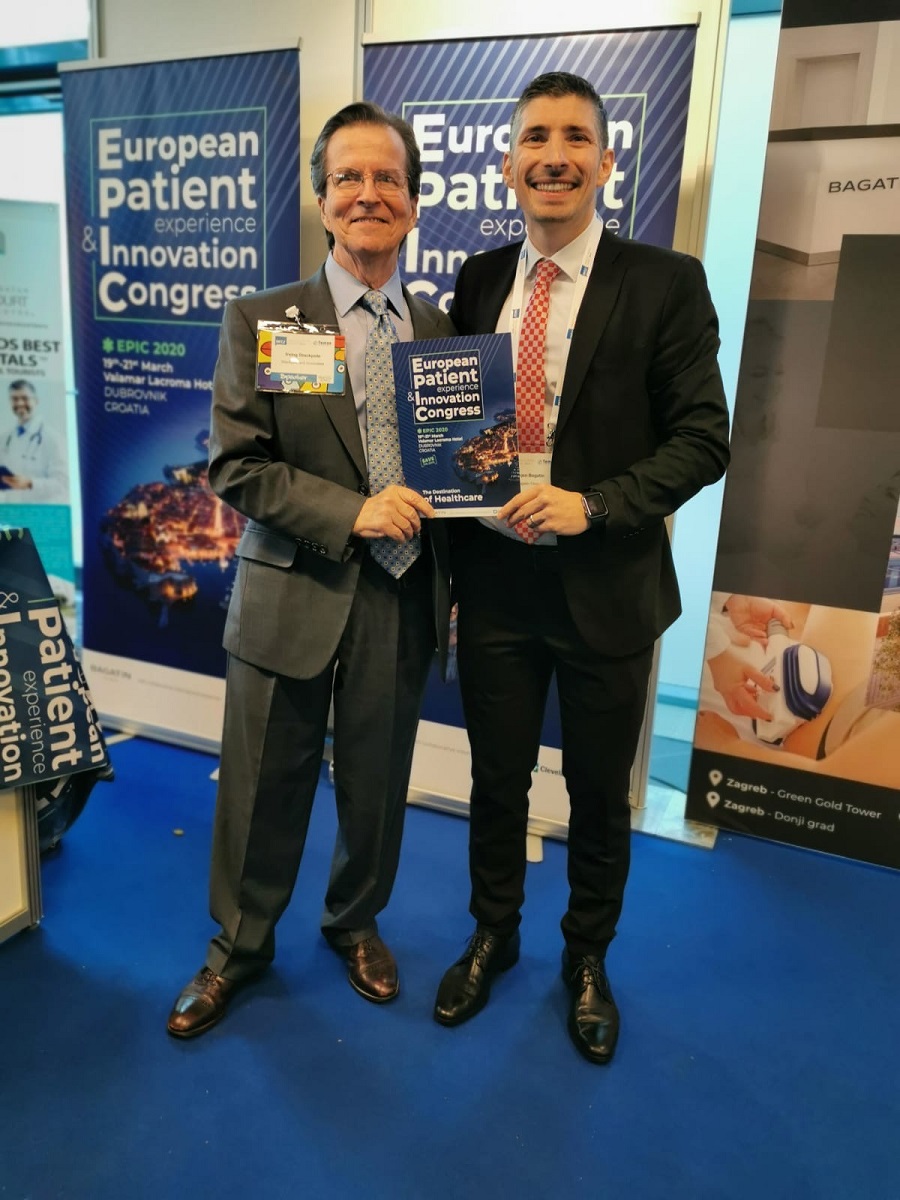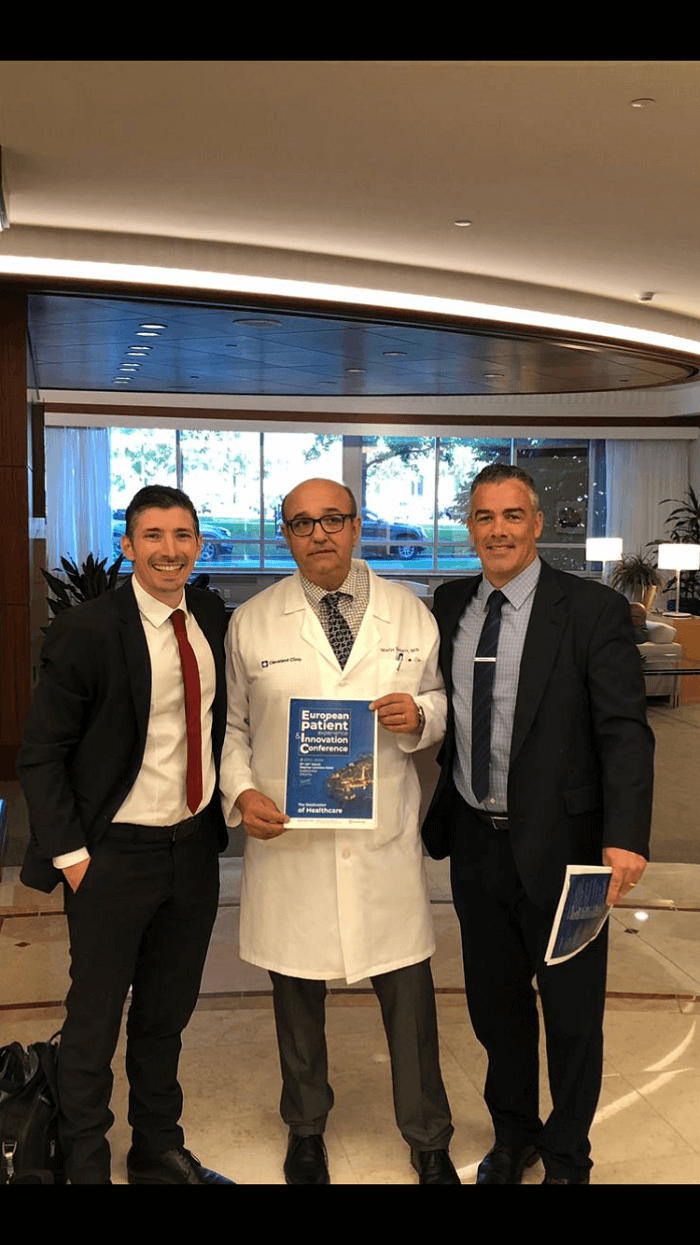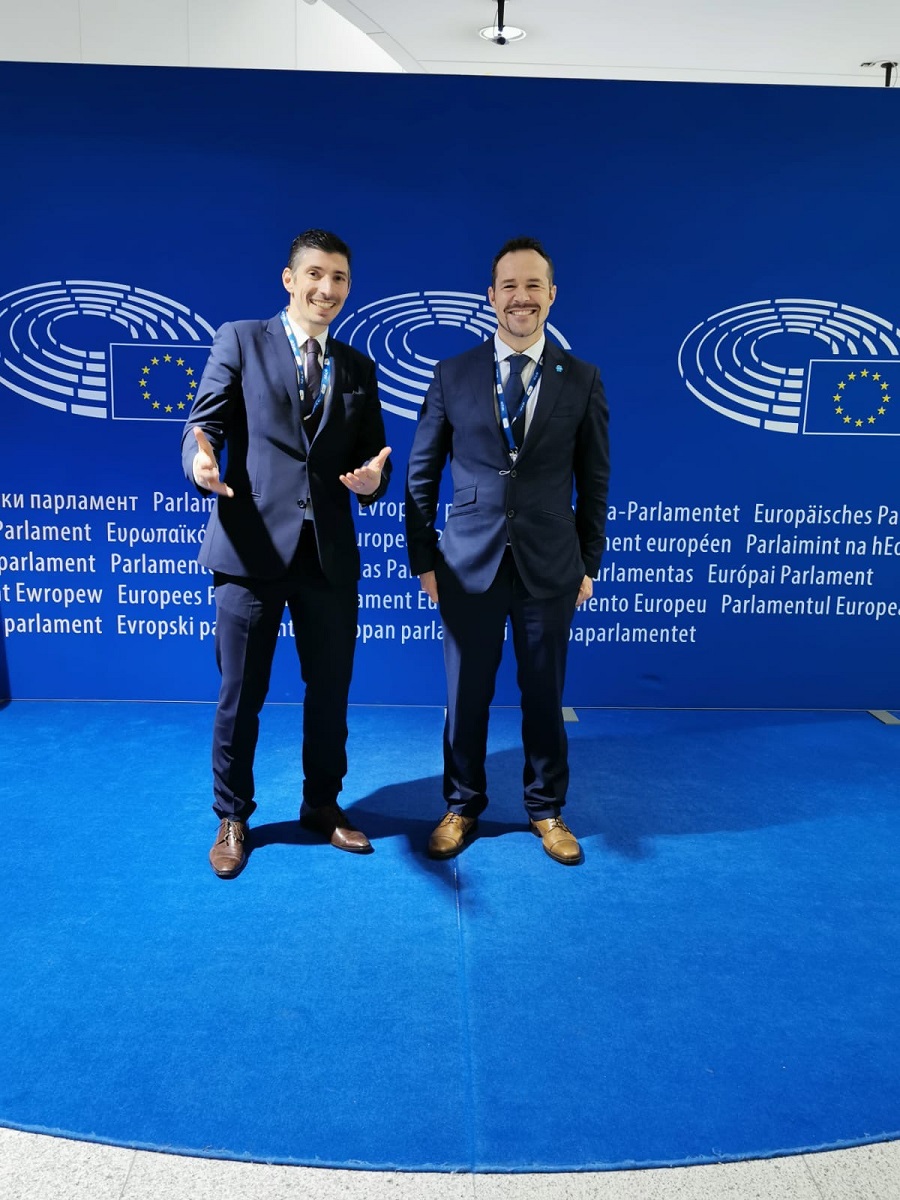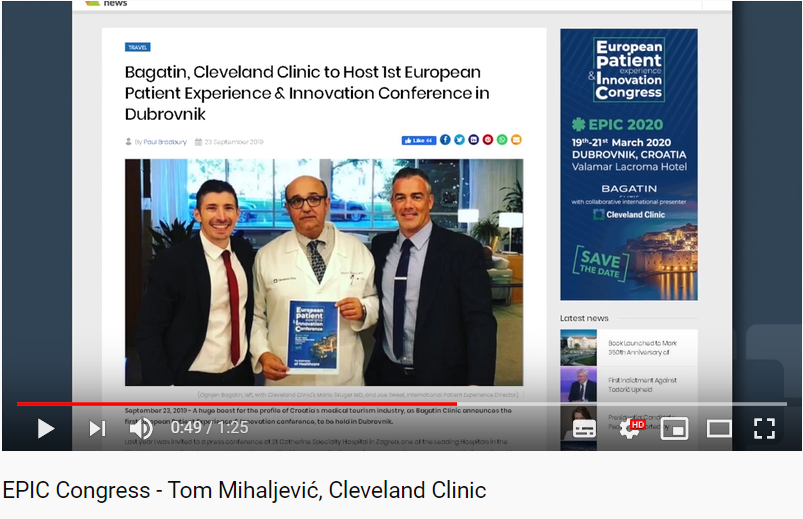Flights to Croatia: Ryanair Adds 34th Summer Service to Zadar, Air France Boosts Dubrovnik and Split
February 4, 2020 - The latest news from around Croatia’s airports for new flights to Croatia with updates from Zadar, Dubrovnik, and Split.
Ex Yu Aviation and Avio Radar report that Ryanair has added its 12th new route and 34th total to Zadar for the summer season. Namely, Ryanair will connect Budapest with Zadar twice per week, on Thursdays and Sundays, from July 2 until September 27, 2020. The Boeing 737-800 aircraft will operate on this route. Avio Radar adds that this is only the second line from Hungary to Croatia.
Recall, Lauda, which is Ryanair’s subsidiary, will base three aircraft at Zadar Airport in the summer. Around 672,000 passengers are expected to use Ryanair to fly to and from Zadar in 2020.
Recall, Zadar Airport, also expects over one million in 2020.
“Having welcomed 800,000 travelers in 2019 is a big achievement for us. It is a milestone. However, new records will be broken in 2020,” said Zadar Airport General Manager, Josip Klišmanić. “During our first fifty years of operations, we handled under a million passengers annually. This will no longer be the case in 2020,” he added. In 2019, Zadar Airport handled 801,347 passengers, which is an additional 197,308 compared to 2018.
Zadar Airport will thus become the fourth airport in the country to welcome one million passengers in a single year, after Zagreb, Split and Dubrovnik.
Furthermore, Avio Radar reports that SkyTeam member and French national carrier Air France has announced that it is boosting operations to Dubrovnik and Split.
The Paris (Rossy-Charles de Gaulle Airport)-Dubrovnik route will operate daily in 2020. Namely, the line will begin operating on March 29, a week earlier than last year. At the same time, during the preseason, it will work twice a week, on Saturdays and Sundays, or one flight a week more than last year.
During the heart of the season, Dubrovnik and Paris will be connected by seven flights per week instead of the five routes last year. The Airbus A318, A319, and A320 will run on this line.
The Paris (Rossy-Charles de Gaulle Airport)-Split line will run six flights per week, or every day but Saturday. This is twice as many flights as last year when the two cities were connected by Air France three times per week. The smaller Embraer ERJ-190 will fly on this line. Last year, the Airbus A319 aircraft flew on this route.
To read more about travel in Croatia, follow TCN's dedicated page.
Croatian Medical Tourism's Mr Positive Ognjen Bagatin on EPIC and Patient Experience
February 3, 2020 - Croatia will be hosting the first European Patient Experience and Innovation Congress (EPIC 2020) in Dubrovnik 2020. Meet the man behind the project, Ognjen Bagatin from Bagatin Clinic in Zagreb and Split.
He is the dynamic pioneer of Croatian medical tourism, a man determined to learn from the best and introduce the best to health tourism in Croatia. Which is how Dubrovnik came to be home to the first-ever European Patient Experience and Innovation Congress, taking place in Dubrovnik from March 19 - 21. TCN caught up with Ognjen Bagatin, the charismatic CEO of International Cosmetic Surgery Clinic of the Year 2019, Bagatin Clinic.
EPIC is the first patient experience and innovation congress in Europe. Tell us firstly what you mean by the term 'patient experience' and why does it merit its own conference?
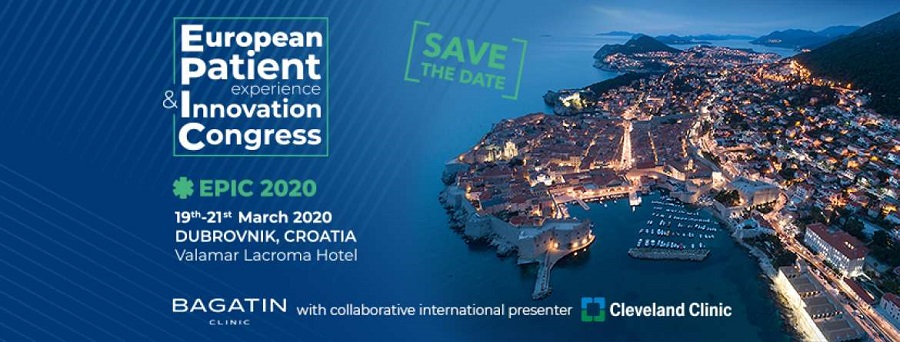
Thank you for a great question. The goal of the „Patient experience“ is to put the focus on the patient-first approach, and the main goal is to get better medical outcomes and to measure them. It is important that all decisions we have in healthcare are looked through the eyes of the patient, and this is something that everybody in healthcare agrees on, and understands. If you place the focus on patients and patient-first approach, we will make better decisions and bring value to patients in all our health systems.
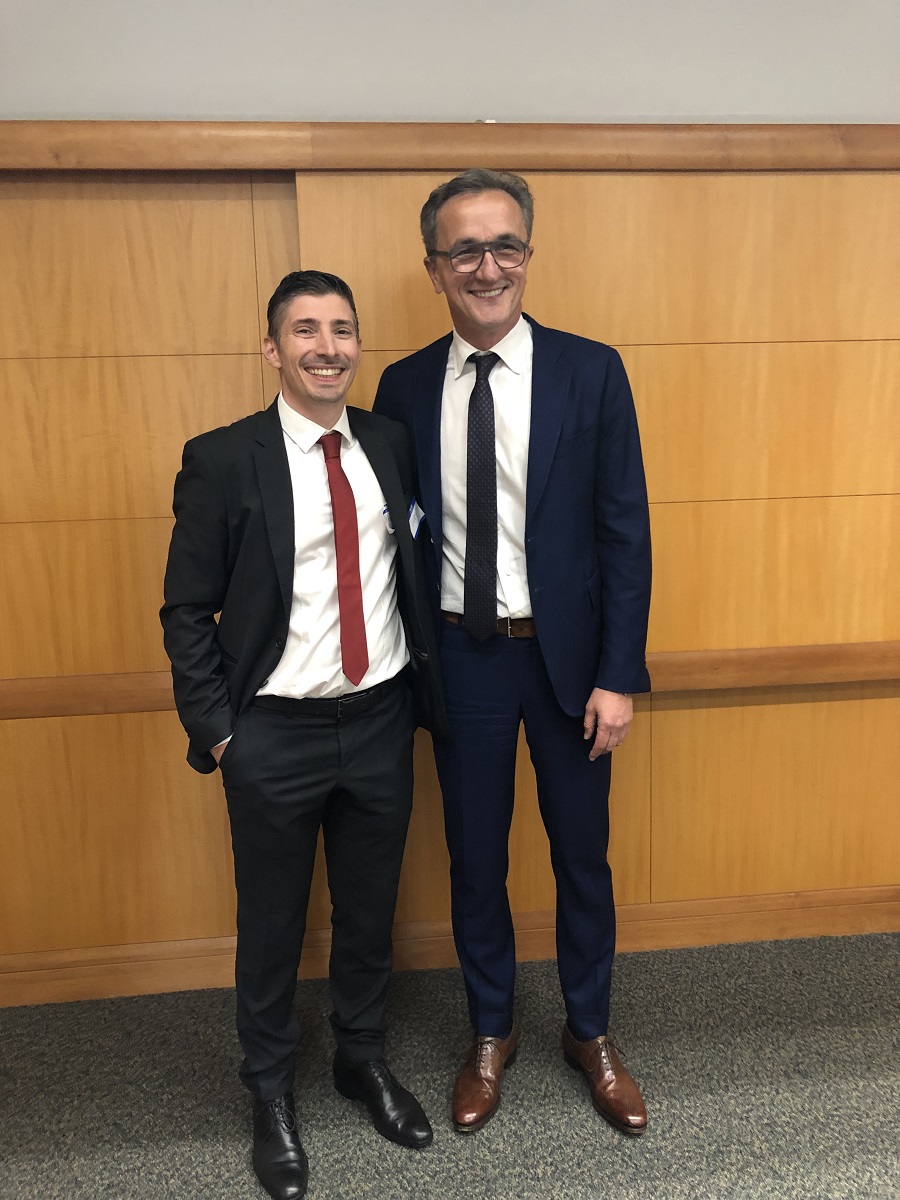
(Ognjen Bagatin with Cleveland Clinic CEO Tom Mihaljevic)
With the digital transformation being so instrumental in healthcare, we wanted to bring all the best innovation that make patient experience better and with that better outcomes for the patients and less cost for health systems in the long run. Cleveland Clinic is a pioneer of Patient Experience, and they were one of the first who opened an office of patient experience in their clinic, even assigning a CXO (Chief Experience Officer). But this is not all, they are sharing that if you want to improve the patient experience, first you need to improve the medical staff experience. You can’t have a great patient experience without having a great medical staff experience.
This should not be just once a year congress, this should be a way of life for health in Europe. A continuous improvement in patient experience every day of the year, and we wanted to bring best of the best to help us with that.
(Ognjen Bagatin with co-organiser Irving Stackpole - read Irving's epic EPIC interview with TCN here)
Tell us how this conference came about, as it has some interesting organizers - the best hospital in the world (Cleveland Clinic), a top medical tourism consultancy (Stackpole & Associates), and a clinic in Zagreb (Bagatin Clinic). Where did the idea come from, and how did you all fall into cooperation?
At Bagatin Clinic we always think about how to provide the best service to our patients and our clients, and the idea came to me when I was in Australia a few years ago visiting few top-notch hospitals to see what they are doing in this field. It led me to HSS hospital in Sydney where they had a huge sign saying „PATIENT FIRST“ in every room, to remind the staff who is the most important VIP person in the hospital.
I consider that is a great way to make your mission short and sweet and I asked people in the hospital if they came up with this or they saw it somewhere else? They said one of their top surgeons had worked in Cleveland Clinic and he transferred the culture to their hospital. So I went to Cleveland Clinic to experience this culture and the rest is history.
(Ognjen Bagatin with Team Cleveland - Mario Škugor and Joe Sweet)
I had a great support there from Mario Škugor, the endocrinologist from Cleveland Clinic who introduced me to the CEO of Cleveland Clinic, Tomislav Mihaljevic MD, and Joe Sweet from the international office of Patient experience. Since Cleveland Clinic is opening their first-ever European clinic in London, near Buckingham Palace, in 2021, they also wanted to spread the Cleveland way of healthcare approach in Europe, and we decided to do this amazing congress after 2 years of preparation. We have an amazing announcement of Tom Mihaljevic for this Congress that have been seen by thousands of Healthcare professionals all around Europe:
To make it more professional, and on a higher level, we approached Irving Stackpole (top-level medical tourism and healthcare consultant) and Daniel C. Shaw (a leader from Global Rating Clinic, an amazing accreditation and reputation building organization) to join us to make a great impact on European Health systems and shift the epicenter of innovations in healthcare from US to Europe and with this to lift the medical outcomes results in our health systems. We as a team, together with Cleveland Clinic champions Mario Škugor and Joe Sweet, and Bojan Pintaric (executive director in Bagatin Clinic) and Sara Bukic (EPIC project leader) have formed a team who can really make a difference. We are very excited and can’t wait for the Congress to start.
Who should come, why, and what will they get from the conference?
Great question. The European Patient Experience and Innovation Congress will be a high energy, stimulating event for everyone, from C -Suite executives, to clinical practitioners, clinic owners, scientists and investors. EPIC brings together some of the most influential physicians, MedTech startups and health professionals from Europe & beyond to the table to improve how your patients will experience healthcare in the near future. As technology continues to help us achieve previously unattainable results in healthcare, join us for an insiders' look at which technologies, ideas & innovations are improving the patient experience with some of the leading clinics & healthcare companies of the world so that you can stay ahead.
(Ognjen Bagatin with co-organiser Daniel Coulton Shaw. Read Daniel's TCN interview for EPIC here)
We will explore:
- • The design of systems to improve patient experience
- • The role of science, artificial intelligence and big data
- • Investment opportunities
- • Bedside and interpersonal methods to improve patient care
- • Mobile and personal care apps
- • The “future” of healthcare
And you will have an opportunity to be a part of a boutique event with some of the giants of healthcare like Cleveland and Mayo Clinic, and many, many more as well. At the moment we have attendees from 22 countries in the world (17 from Europe) and the number is increasing every day.
Just looking at the list of speakers already assembled and with more to be confirmed, it looks like a medical tourism A-list - Cleveland Clinic, Mayo Clinic, Disney Institute, World Bank, the editor of IMTJ, as well as renowned Croatian experts such as Dragan Primorac from St. Catherine Specialty Hospital and Nikica Gabrić from Svjetlost. Tell us more.
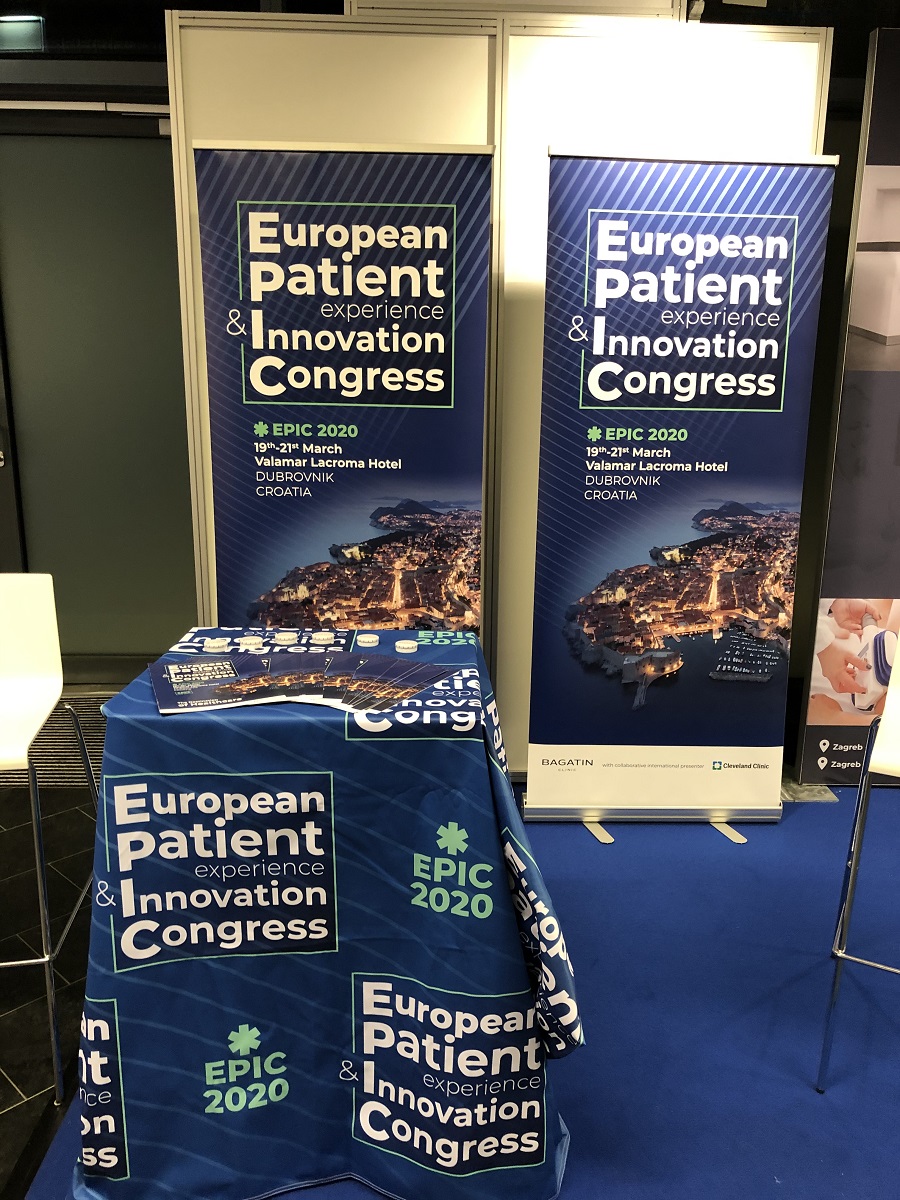
I could talk all day about them, the organizational team has done a really amazing job of bringing to one event an incredible set of speakers from all over the world. The names of some of our keynote speakers are:
- Francis Papay, MD, a plastic surgeon from Cleveland Clinic, who did the first face transplantation with his team in North America – a fantastic story.
- Beata Kurucz, EIT (EIT Health), and they stimulate start-ups to bring innovation to life while building a globally competitive European healthcare industry.
- Stephan Bender from Disney institute – who will share with us how a hospital would look like if it was run by Disney, a top hospitality brand in the World
- Ivan Duggan from Cisco, an innovator who will share with us how the future will look like
- Rahul Kashyap, MD, Mayo Clinic innovator and clinician, He is an award-winning public speaker. He has received awards for exemplary research, quality improvement and leadership
- Dragan Primorac, MD, St. Catherine Hospital – who will share his futuristic view of personalized medicine and St. Catherine`s cooperation with Mayo Clinic and so on.
- Nikica Gabrić, MD, Svjetlost Eye Hospital, who will share how to make your clinic/hospital so popular that American Celebrity Movie Stars visit them and refer their friends to his 9 clinics in the region
- Karin Jay from Planetree, relationship-centered model of care and international certification criteria
- Paul O'Brien, a famous London Clinic chef and many many many more.
The Congress will also have a „shark tank – start-up contest“ on Saturday (March 21st) with teams from all over Europe.
Why Dubrovnik?
Dubrovnik is a spectacular location and a great city to host this kind of event, with lots of history and a place that is on everybody`s bucket list. A city with an amazing history.
Also, because it has a connection with healthcare and some fun TIPS:
The home of EPIC 2020 - the city of Dubrovnik, developed on the east coast of the Adriatic, becoming an EPIC trading and maritime power, especially from the 14th century onwards. Although the city was economically developed, maritime trade with the East and the hinterland brought on a high risk of epidemics of various diseases. In order to preserve its commercial prosperity, identity and existence, Dubrovnik introduced various preventive medicine measures, the most famous of which is the invention of quarantine! By introducing regulations relating to hygiene and medicine in order to protect the health of its population and ensure the status of a powerful trading force it had at the time, it was ranked among the most developed European cities, while maintaining the distinctiveness of its medicine.
Another EPIC fun fact is the first pharmacy in Croatia, and the 3rd in Europe was in Dubrovnik. During the Middle Ages, the city was surrounded by gardens full of aromatic herbs, hence was the idea was born of founding laboratories for making medical preparations used to heal the minds and bodies of those in need!
P.S. Anyone who is a Game of Thrones fan wouldn’t want to miss the opportunity to visit King’s Landing!
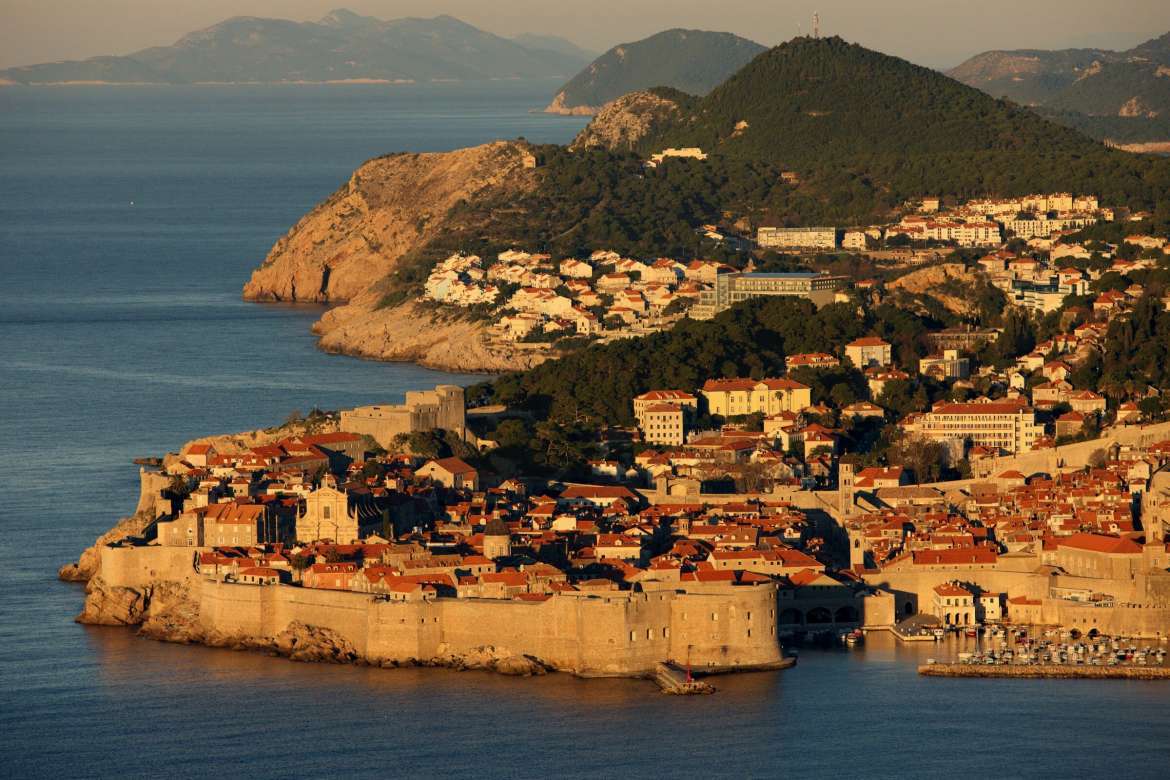
(Photo by Romulic & Stojcic)
Innovation and technology are obviously playing a key role in the development of the medical tourism industry. What trends in particular excite you the most, and what are you looking forward to at EPIC?
Yes, you are right, innovation and technology are really influencing the way we communicate with our patients, but also how we follow up on them and how we create trust and relationship with them. This is where innovation and technology kick in the most, and at EPIC we will have an opportunity to hear about amazing innovations that are used by some of the world’s giants in healthcare, but also about niche innovation that can really make a difference in the future for the patients themselves and the patient experience. I`m looking forward to listening, learning and networking with great speakers and amazing attendees from all over the world.
2019 was a great year for your own Bagatin Clinic. We last saw each other in Berlin at the IMTJ Awards, where you picked up International Cosmetic Surgery Clinic 2019, as well as TEMOS accreditation. What are your plans for 2020 and how do you see things moving in the Croatian medical tourism industry in general?
We have fantastic plans for this year, including the expansion of our clinic in Zagreb the especially dental and aesthetic medicine departments. We are starting with some new services such as hair restoration in Zagreb and Split (which is very popular among medical tourists), we will be present as speakers or partners on more than 15 different conferences and summits outside of Croatia, and will probably open one more satellite outside of Zagreb and Split (this I will share soon).
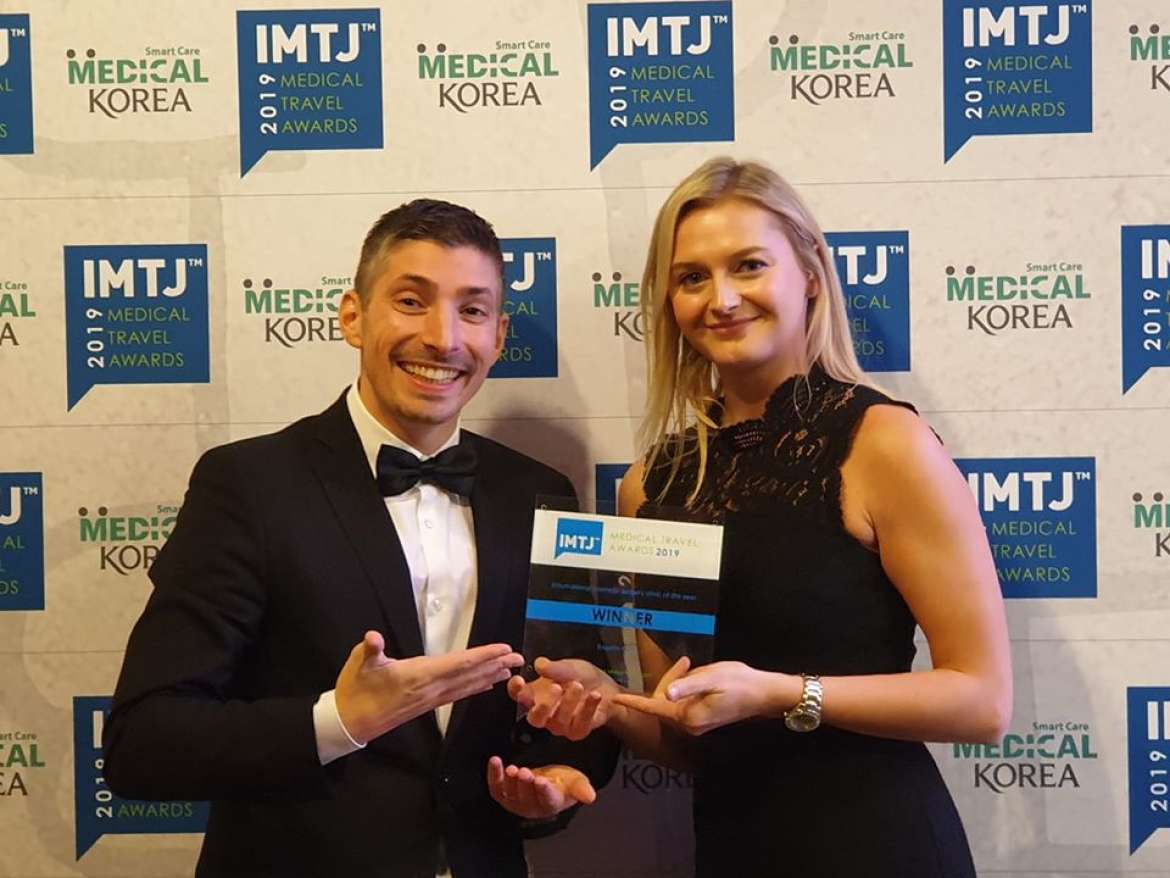
(Ognjen Bagatin at the IMTJ awards in Berlin, where Bagatin Clinic was named International Cosmetic Surgery Clinic of the Year 2019)
We are continuing with our digital transformation and will open our webshop in February, continue to work on paperless clinic and use technology to save our staff's to put an even better focus on our clients, and are in the process of developing our own app for our clients that will help to increase their patient experience with Bagatin. We are going to continue our cooperation with Cleveland clinic, and try to work more closely with other Croatian clinics and service providers so we can have a bigger impact on international markets. We have so many open projects at this moment, but let’s talk about it when we finish some of them?
To learn more about EPIC 2020, visit the official website.
For the latest from the Croatian medical tourism industry, follow the dedicated TCN section.
Total Croatia News is an official media partner of EPIC 2020.
Daniel Coulton Shaw on the Patient Experience at EPIC 2020 in Dubrovnik
January 29, 2020 - The first European Patient Experience and Innovation Congress will take place in Dubrovnik from March 19-21. TCN catches up with co-organiser, Daniel Coulton Shaw from Global Clinic Rating to find out more.
1. The term 'patient experience' is something relatively new in terms of medical tourism conference themes. Tell us what you mean by it, and why people will be hearing a lot more about it in the future.
Wikipedia states that Patient experience (PX) is defined as the sum of all interactions, shaped by #healthcareorganization culture, that influence #patient perceptions across the continuum of care.
For me, in my own clinic and the clinics I consult for, I look at patient experience (PX) as simply "everything we say & do". No matter if we are a single doctor, a private medical practice, medical clinic or speciality hospital, a patient experience always occurs, and it's something we can usually influence directly.
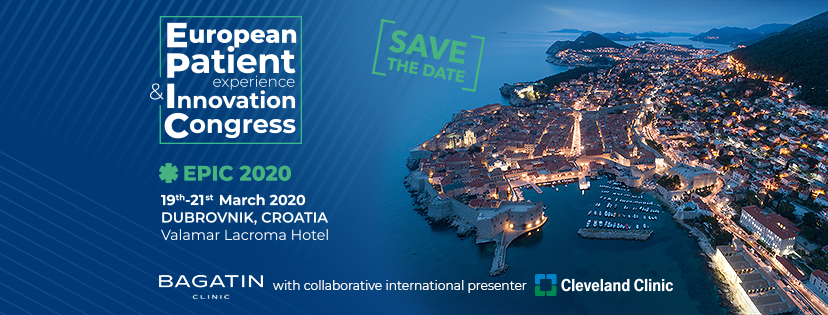
2. How did you get involved in organising EPIC and what will you be talking about in your presentation?
A Croatian healthcare entrepreneur called Ognjen Bagatin invited me to be part of the organising committee along with Irving Stackpole, both of whom I respect greatly for their impact on the medical travel market both in Croatia and beyond. Both of them not only work in healthcare make a profit, but are truly focused on improving healthcare for all, not just their clients. I share that passion and am honoured to work with them to have the chance to bring lasting improvements to the provision of healthcare with central Europe and beyond.
With all the experienced healthcare companies and presenters sharing technological advances brought to us by the digital age, I'm going to cover a part of patient experience beyond that, and that is building and excellent patient experience through empathy.
I'll be taking participants on a journey through a patient experience map - how to notice, measure and improve on what a patient sees, hears, thinks & feels, says and does. Going beyond the bottom line, and building medical centres of excellence on patient empathy. I'm excited!
3. You have a great personal story of initially helping a dentist do a website in Bratislava, which mushroomed into your GCR business today, and now you have a very good understanding of clinics in Central and Eastern Europe. Which countries are performing best in terms of paying attention to detail in the patient experience, and tell us about any individual examples of excellence?
It's hard to single out individual countries that are "performing well" inpatient experience, as it is to find a country that has the best customer experience in coffee shops. Starbucks do a great job of systematising the coffee drinking experience, but it's hard to beat that little Italian "cafeteria" in a forgotten corner of the country where the barista strokes your dog, asks about your leg and moves your chair so that you can get a bit of sun on your face between the trees.
It's similar in healthcare facilities. I believe that countries such as Finland, Australia, the Nederlands, the US and Japan have made great strides in building systems around the patient experience, but there are hidden gems everywhere I travel.
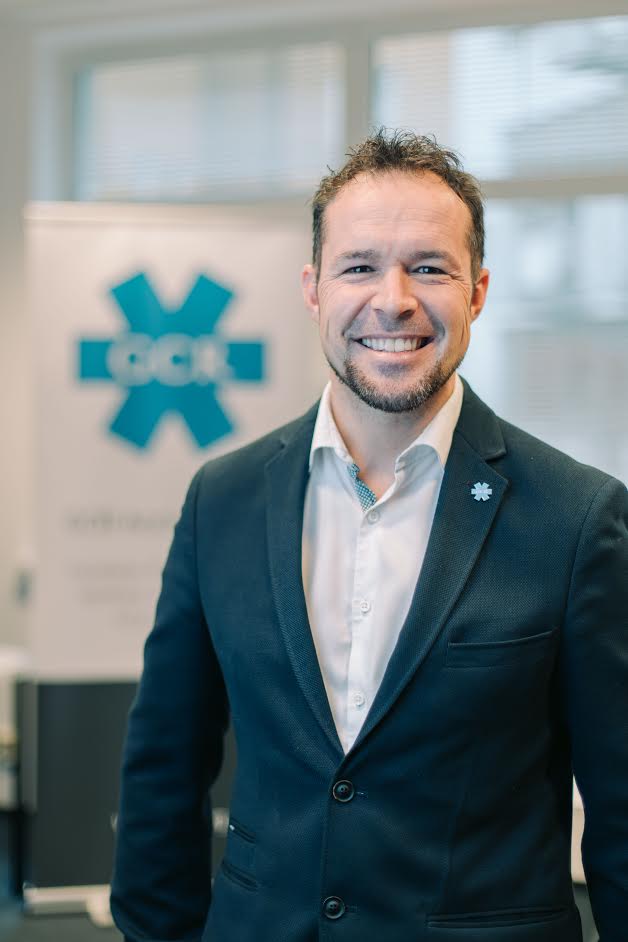
Back to that coffee example. A few months back I wrote an article on Linkedin about a fertility clinic in the Czech Republic, that hired a south American barista simply to create great coffee for their patients. But that's not all. Via social media, he contacts the patients ahead of their visits to ask them simply what do they prefer tea/coffee - black, white, sugar, no sugar. And to the patients surprise as soon as they sit down for the initial consultation with the doctor, the barista brings in their drink just the way they like it - without even asking the patient about it during their visit.
Now I can tell you that many patients who visit fertility clinics don't like to share this private treatment to often on social media - but they do share photos of their fantastic coffee experience, and that has done wonders for this fertility centre in reaching new patients.
4. Why Dubrovnik?
Dubrovnik. We'll who wouldn't want to get out of the office or hospital and go down to Dubrovnik to learn from the world's best inpatient experience. It's a hard offer to turn down.
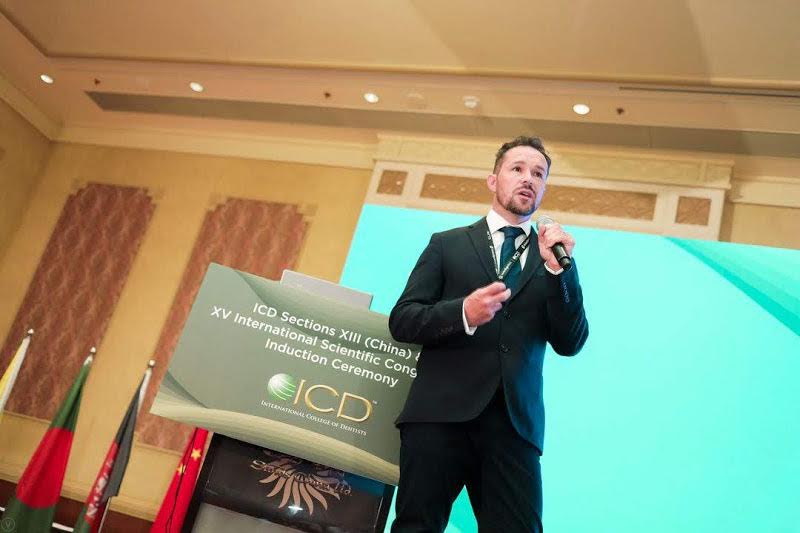
5. Technology is changing the world, and healthcare is no exception. Innovation in healthcare is a core part of EPIC. Tell us a little about this, and what aspects of innovation and technology excite you the most?
For me personally, the most exciting part of current innovation in healthcare is certainly the developments in patient choice. Instead of blindly asking grandma who's the best doctor, going to the nearest available health centre, or at least the ones that have the best marketing, patients can increasingly turn to patient-reported treatment outcomes (results), along with clinically reported treatment outcomes to judge the quality, affordability and value of individual medical centres.
6. There are some great speakers already confirmed. Give us a flavour.
I'm excited about Dave De Bronkart, who learned he had a rare and terminal cancer, he turned to a group of fellow patients online and found the medical treatment that saved his life. Now he calls on all patients to talk with one another, know their own health data, and for healthcare to listen to patients as partners in the new world of participatory medicine.
There's also Thijs De Blok from Buurtzorg, I was blown away when I learned about their self-governing teams of ten to twelve nurses providing both medical and supportive home care services. There are over 10,000 nurses in their teams now, dramatically lowering the healthcare burden in the country, with patient satisfaction scores are 30 percent above the national average 9.1 out of 10. This is no small feat, and they have since replicated similar results in Asia and beyond.
7. You are a regular and popular visitor to the Croatian medical tourism scene, and last year in an interview for TCN stated that Croatia can be a hub for medical tourism for Central Europe. Is that still your belief, and what progress has been made in the last year?
Croatia remains the leading contender within central Europe for elective healthcare. As the cost of treatment between the countries continues to level out, medical travellers are looking beyond affordability to value, quality and experience. With Croatian clinics like Bagatin, St. Catherines, Rident & Svjetlost stepping up their game this year, I believe that the other former Yugoslavian & USSR countries should not get too complacent and comfortable.
Croatia is not relying on the government to support them in reaching international patients, as many of these countries still are. It is through the hard work of the private healthcare sector, and active clusters like Kvarner Health that helping the country to rise, regardless of whether the government notices or not.
With the EU presidency in Croatia, it looks like the right place and the right time.
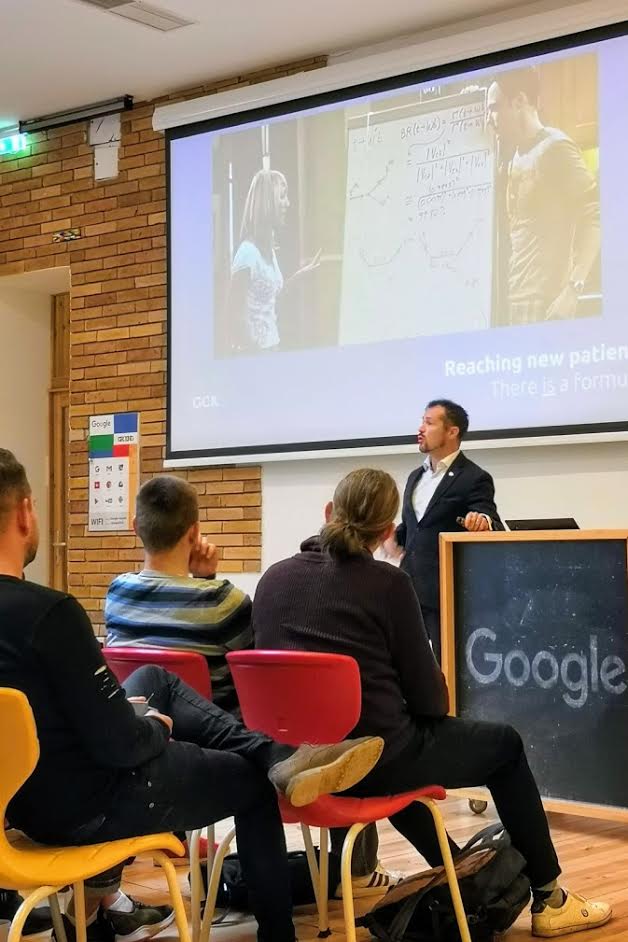
About Daniel Coulton Shaw:
Anyone who knows Daniel Coulton Shaw will tell you that he is an enthusiastic storyteller full of practical ideas that will set your head spinning. His entertaining presentations are largely inspired by the successes and failures from 152 forward-thinking international private medical organizations, health clusters, hospitals, clinics and practices across 26 countries worldwide of multiple specialities. Daniel works closely with this portfolio of leading private clinics, improving the way that these clinics & hospitals reach, book, and engage patients to increase their reputation & results. The patient innovation trends Daniel shares are always supported with insightful data & facts gained through the past 4 years as the ambassador for the GCR the Global Clinic Rating, an award-winning initiative co-founded by an employee of Google to enable both patients & healthcare professionals to compare the apparent quality of almost half a million private clinics & hospitals worldwide. When not on the road, Daniel loves to put theory into practice in the day-to-day running of a successful international dental clinic for English-speaking patients in central Europe that he co-founded back in 2007 as well as spending time “off the grid” with his family – exploring the world beyond phones & screens in the mountains, on the ocean, at great concerts, running races or serving those with limited access to education & care.
You can connect with Daniel Coulton Shaw on LinkedIn.
To learn more about EPIC 2020, visit the official website.
To follow the latest from the Croatian medical tourism industry, check out the dedicated TCN section.
Flights to Croatia: Vueling from Paris to Dubrovnik, Condor Boosts Germany to Split
January 30, 2020 - The latest news from around Croatia’s airports for new flights to Croatia with updates from Dubrovnik, Split, Zadar, and Rijeka.
Avio Radar reports that Spanish low-cost carrier Vueling has announced a new route from France to Dubrovnik as part of this summer’s flight schedule. Namely, the Paris (Rossy-Charles de Gaulle Airport)-Dubrovnik service will run twice a week, on Mondays and Fridays, from the beginning of the summer flight schedule, or March 30, 2020.
This will be the first Vueling line from France to Croatia. This route remains in operation until the end of the summer flight schedule with two flights per week. An Airbus A320 aircraft will work on this line.
Furthermore, Avio Radar reports that the German airline Condor will increase traffic from Germany to Split for the 2020 summer flight schedule. The Dusseldorf-Split line has been strengthened, and instead of last year’s two flights per week, on Thursdays and Sundays, there will be a third flight per week this year on Fridays. An Airbus A321 aircraft will operate on this line, which will begin three weeks earlier than last year, or, from April 10.
The Frankfurt-Split route will keep three flights a week, on Fridays, Sundays, and Tuesdays instead of Thursdays. The third line between Hanover and Split will work on Friday and Sunday.
In contrast, Condor will reduce traffic from Germany to Zadar. Namely, last year’s lines from Dusseldorf and Hanover to Zadar have been canceled. Only the Frankfurt-Zadar line remains in operation with one flight per week, on Sundays. It will also begin working a month later compared to last year, or from May 31, 2020.
The Frankfurt-Dubrovnik line will operate once a week, on Sundays instead of Saturdays, but will begin working a month and a half later than last year, or from May 31, 2020. The Frankfurt-Rijeka line remains in operation twice a week, on Thursdays and Saturdays, just as it did last year. The Airbus A320 aircraft has been announced on all other routes listed.
To read more about travel in Croatia, follow TCN’s dedicated page.
CNN Highlights Dubrovnik in 2020 Fight Against Overtourism
January 25, 2020 - If 2019 was the year of overtourism, is 2020 the year crowded destinations fight back? CNN reports on various initiatives, including from Dubrovnik.
Where once Dubrovnik was hailed as one of the must-see destinations of Europe, the Pearl of the Adriatic, in recent years it has been more likely to be featured in the international media as a poster child of a new scourge of modern travel - overtourism.
Multiiple daily cruise ships, an army of Game of Thrones fans, and the incessant tour bus day-trippers from neighbouring (and not so neighbouring) destinations all played their part to crowd the historic old town that limits to the number of people allowed in were introduced, and locals advised to stay indoors at certain times of the day.
Dubrovnik was not alone in being a victim of its own success, with top destinations such as Venice, Amsterdam and Barcelona also feeling the strain. It is an issue which needs to be urgently addressed if the charms of what make these destinations so attractive and unique are not to be lost.
In a detailed feature, CNN looks at the various initiatives being undertaken by five European destinations which have been worst-affected by overtourism - Amsterdam, Santorini, Barcelona, Venice and Dubrovnik:
Mayor of Dubrovnik Mato Franković has cast himself as a crusader against mass tourism, shutting down 80% of souvenir stalls, and restricting cruise ships to two per day.
The stalls remain closed, and the two-ship rule was abided to 70% of the time during 2019, he tells CNN. It will be further enforced (with, he says, higher compliance) in 2020.
"There's not such a big impact to the city now," he says. "Everyone should feel comfortable without any [pedestrian] jams."In November 2019, Franković proposed an effective ban on new restaurants (the vast majority of Dubrovnik restaurants have seating mainly inside, so the legislation has banned any new outdoor tables).
That resolution was passed by the city, and a spokesperson told CNN that it is due to come into force for 2020.
To learn more about the city, check out the Total Croatia Dubrovnik in a Page guide.
Looking for Car-Friendly Accommodation in Dubrovnik? Why You Should Skip the Center
January 21, 2020 - Did you know that the City of Dubrovnik will establish a traffic congestion zone around the historic core of the city, which could ultimately affect tourists renting in the area?
Namely, the first phase of this traffic solution will relate to tourist buses and passenger cars 8 + 1, or vans, which is expected already in the upcoming tourist season.
“The City is working on introducing a congestion zone around the City. In the first phase of the project, four cameras will be erected in the area near the public garage on Zagrebačka Street, above the Tourist School at the exit towards Ul. Druge dalmatinske brigade, one camera will be at Pile and one on Ul. branitelja Dubrovnika. These are modern, up-to-date camera systems that will be able to recognize vehicle plates as well as vehicle dimensions,” explained Djuro Šutalo.
So, what are these cameras for, anyway?
This video surveillance will facilitate the detection of vehicles that are in the traffic congestion zone outside the reserved term, or are staying longer than the allowed time at Pile or Ploče. Misdemeanor proceedings will be conducted for vehicles without a valid permit.
More specifically, only vehicles with privileged tickets will be able to pass through the area around the historic center, which are residents of the City of Dubrovnik and the neighboring municipalities.
“In 2020, we are introducing the first phase for buses and vans, and this year we will see how the system works,” said Šutalo. Whether tourists will be able to get to their apartments, for example, those renting in Ploče, is a question that worries many renters - and there is a considerable number in the area.
At this point, Šutalo cannot answer that question.
We do know that taxi drivers can travel freely through Zagrebačka Street this year, though changes could be possible for taxis come 2021, depending on how the new system flows.
The City believes that establishing a traffic congestion zone around the historic core of the City, as well as other traffic solutions they introduce, will achieve systematic management and development of the traffic system. Above all, there will be significant relief from traffic around the historic core.
So, what will this mean for renters?
If you’re traveling to Dubrovnik by car, whether it is with your personal vehicle or transfer service, think about booking accommodation outside the busy city center.
Make your life even easier by booking with Solo Transfers. You can check out their rates to Dubrovnik on their website.
Source: Dubrovacki Vjesnik
To read more about travel in Croatia, follow TCN’s dedicated page.
Dubrovnik No Longer on Independent's "Where Not To Go" in 2020 List
Wondering where not to go in 2020? Dubrovnik is no longer dominating those articles and lists...
Dubrovnik has become a victim of its own success and over recent years the negative effects of that have become more and more apparent. From cruise ship pollution to overcrowding to the massive overuse of old infrastructure that was never designed for such volumes of people and traffic. Owing to the above mentioned points, plus countless others, Croatia's southernmost city and tourist Mecca has unfortunately found itself on numerous ''where not to go'' lists over the last few years. It seems that enough steps have now been taken to see it removed from such lists.
As Morski writes on the 15th of January, 2020, the positive effects of systematic measures launched by the City of Dubrovnik's local government back inn 2017 with the "Respect the City" (Poštujmo grad) project have been recognised internationally among the professional public and the international media, and in support of this is the list compiled by the popular British publication The Independent entitled "Where Not to Go in 2020".
Dubrovnik has not been included in the list of destinations to be avoided in 2020, after precisely this medium listed Dubrovnik along with Venice and Barcelona (in 2017) as a destination whose protected heritage is endangered due to an excessive number of tourists. Numerous other portals with a focus on travel also listed the Pearl of the Adriatic on their ''where not to go'' lists.
''This imposed stigma on mass tourism didn't affect its popularity at all, on the contrary, statistics testify to the increase in tourist arrivals from year to year. However, there were no unbearable crowds and blocking of the entrance to the historic core, except once in exceptional circumstances due to the ship's earlier arrival, which showed that Dubrovnik's problem was not the number of tourists, but the management of the destination.
Thanks to the controlled, effective and strategic measures of the local self-governmental unit, this negative trend was stopped and the negative effects of the most important economic branch of the city and its surroundings were prevented. Dubrovnik has thus transformed itself from a city where tourism spontaneously happens to a destination that responsibly manages tourism, respecting the identity of the city and protecting the natural and cultural resources that attract millions of people,'' pointed out Marko Miljanić, Head of the Department of Tourism, Economy and Maritime Affairs of Dubrovnik.
Make sure to follow our dedicated travel page for much more.
Croatia Again in Top 10 Countries with Most Booking.com Awards
January 15, 2020 - Booking.com announced the winners of the Traveler Review Awards 2020. Croatia is once again among the top 10 most awarded countries.
HRTurizam reports that nearly one million awards (986,449) were awarded across 220 countries and territories. Among the ten countries with the highest award winners was Croatia, which boasts 42,763 winners.
The awards acknowledge these partners for their superior hospitality and for providing travelers with incredible experiences when booking accommodation.
Numerous countries and destinations continue to provide excellent service year after year, and in 2020, the countries with the most awards include Italy (130,253), Spain (66,755), France (61,492), Germany (49,777), Croatia (42,763), the United States (42,112), the United Kingdom (41,848), Poland (36,793), Russia (36,296) and Greece (33,259).
The spectacular increase in the number of award winners continues this year among apartments. This type of accommodation is again at the top of the list, accounting for almost 40% of winners among accommodation facilities globally in 2020.
For the third year in a row, they made up four of the five most awarded types of accommodation: apartments (380,936), hotels (179,869), private accommodation (94,162), weekend homes (82,241) and bed and breakfasts (75,875). In Croatia, the most awarded accommodation types are apartments (33827), private accommodation (3989), weekend homes (1555), villas (933) and hotels (729).
Although hotels are second in awards globally, three-quarters of all award-winning accommodations (75%) are made up of apartments and holiday homes and other unique accommodations, including options from boats and igloos to country lodging. A recent poll conducted by Booking.com on more than 22,000 travelers found that nearly two-fifths (39%) of global travelers prefer to stay in a weekend home or apartment over a hotel.
Dubrovnik, Zagreb, Opatija, Baska, Cavtat, Osijek, Cres, Korenica, Slunj, and Rakovica provided the warmest welcome on the Croatian market.
On the other hand, the top 10 Croatian accommodations to receive the Traveler Review Awards in 2020 are Apartment Spectre, Zagreb, Embassy Row BnB, Zagreb, Studio Makala, Trogir, Momentum Apartment, Split, Apartments Beso, Makarska, Luxury Apartment Dvor, Split, Apartment Roman Heritage, Split, Neretva Valley Apartments, Metković, Apartmani Nila, Pučišća, and PREMIUM, Osijek.
To read more about travel in Croatia, follow TCN’s dedicated page.
TCN Down Under: Interview with Australia Water Polo Coach Elvis Fatovic
January 14, 2020 - Continuing our 'TCN Down Under' series, Daniela Rogulj interviews former Jug captain and assistant coach to Croatia, and current Australia water polo coach Elvis Fatovic in Sydney.
On a sunny Wednesday morning, Elvis Fatovic and I met in the Bronte neighborhood of Sydney, in front of Australia's famous Iggy's Bread, owned by Igor Ivanovic of Belgrade. It was the Bronte Balkan experience, as passersby greeted us in Croatian and spoke of preparing sarma for Orthodox Christmas. We were served freshly-baked bread and hot coffee to complement the Bajadera I brought over from Split.
For a moment, I'd almost forgotten where we were.
After exchanging sentences mixed in English and Croatian, Elvis shared his life story about how he, a Croatian water polo legend from Cavtat, moved his life to Sydney to lead the national team of Australia.
Elvis hails from Cavtat, just 30 minutes south of Dubrovnik. Water polo is the pulse of that area, and Elvis grew up in Jug Dubrovnik’s youth system.
“That is the natural path. Cavtat is probably one of the smallest, most successful water polo towns in the world. For example, in the London Olympics, you had three gold Olympians from Cavtat. Sukno, Boskovic, Obradovic are all from the area.
In Cavtat as a kid, you have two options - one is to play water polo, and the other is to play in the brass orchestra. And I’ve done both, haha. But I thought that I was more talented in sport, and at some stage, you have to decide which way you want to go. It’s also common that the more talented players follow the steps of the successful players and move to Dubrovnik, so that is how I ended up in Dubrovnik. Water polo then was very big; we are talking about the ‘80s, a long time ago when Jug won the first European Champions League title. It was hard not to fall in love with the sport.
It was crazy to watch, and during that time, 4-5,000 people would be at every game.
Thankfully I had quite a solid career. It’s a dream for the majority of water polo players to play for a great club in your city, and I had that privilege."
From Jug, Elvis played one season at rival club Mladost Zagreb.
“Yes, that was one season when a lot of things happened in my life. It was after the war, and Jug was at a good level but without a light at the end of the tunnel. It didn’t seem like something big was going to happen. Because of my career, I went to Mladost. Before that, I refused to go to Italy, and at the beginning of the ‘90s, I preferred staying in Dubrovnik, but then I decided okay, it’s time to take a step in my career. The best part of that was that I met my wife in Zagreb. Though she is not from Zagreb, she’s from Primosten. Not only did we meet there, but it was quite a successful time for the club, and I also met some of the greatest friends I could have, like Vjeko Kobešćak. After that season, my wife and I married and had kids.
Around '94/'95, Jug started to build something great. It was the beginning of the Jug we have now.”
While Elvis played for Jug, they won 5 Croatian Championships and 6 Croatian Cups. He also led Jug to win the European Championship in 2001 and 2006, and won the LEN Europa Cup in 2000.
“The highlight was definitely winning that first European Championship. We played in the old pool, in front of 5,000-6,000 people. I can’t imagine it ever being so packed again. We played against Bečej, which was a Serbian club. In that period, they were an unbelievable team and a big rival. In two years, they didn’t lose a single game. We beat them with a buzzer goal, which I scored, and that was probably the highlight of my career."
What was it like living in Dubrovnik in the middle of Jug's success?
“It was amazing. During that time, athletes were like celebrities. Especially because Jug wasn’t so successful before, and that’s probably part of the reason why maybe even fewer people follow them now. Winning has become the norm, the people expect it, so maybe Jug needs to lose for a while in order to bring the people back, haha. But no one wants that.
At that time, the majority of the players were from Dubrovnik, and the people really followed us. When we played in Hungary, students from Zagreb would follow us - they’d even travel to Italy. It was extraordinary to be a part of that story.”
We switched gears to the Croatia national team, where Elvis had 128 appearances. Elvis spoke about the moments that stood out.
“To be honest, I wasn’t the happiest with my national team career because there was a huge gap. I didn’t start playing for Croatia until when I was almost 28, and that's because of a situation when I moved from Mladost to Jug. But even so, I played two Olympic Games and we won the European silver, which was also great. I think, even as a national team player, I had more disappointment than greatness. Especially in the two Olympic Games when we were one of the favorites to win the gold medal. Here in Sydney, during the most crucial moments, half of the team had the flu, and we lost the quarterfinal game, and that was an enormous disappointment. As a player, you need at least six months to recover from that.”
Elvis finished his career as a player in 2007 and moved onto coaching. But was a coaching career always in his cards?
“It probably was because I captained Jug for ten years and was the right hand of the head coach. We always joked about the staff positions the senior players would take and more or less, everything happened that way. I was always interested in that job and one of the youngest coaches to ever lead Jug. I was the coach of the junior program for one year, and then immediately after, I became the head coach.
At the same time, as I became head coach of Jug, I became the assistant coach of Croatia under Ratko Rudić. It was a fantastic experience to work with someone like Ratko. It’s one thing when you are a player, another when you are the assistant, but it is completely different when you are the head coach. And I am so grateful that I had the chance to work with the best one. Ratko is the most successful coach in the history of water polo, and maybe not only water polo - perhaps of all sports. It was great to learn and see how the game is not only about the tactics; it is about many other things aside from that.”
Croatia water polo won the gold at the 2012 Olympics. Elvis was the assistant coach then.
“I believe that 2012 was not only about the summer when we won gold. It’s even more important for us, especially with our Croatian mentality, to look at what happened in January that same year. We played the European Championship and finished 9th. We lost so many games and were not performing well, and that was a huge disappointment, but it happened at the right time. We had seven months to set our goals and prepare, and if you ask me, that was perhaps the key to Croatia's success."
After a fruitful period as the assistant coach of Croatia, Elvis was asked to be the head coach of Australia. He moved to Sydney in 2013.
“For me, as a coach, I needed some time to adjust to everything, because it is entirely different here than in Europe. Europe and Australia have nothing common when looking at the sport, and to be honest, I didn’t expect much. The priority of the players is also different. The majority of them do not play professionally. I had to adjust the training, to read their priorities. It is also different here because there is a significant difference between the Olympics and any other competition, and I believe it shouldn’t be that way. In Australia, the Olympics are huge.
The most important thing for Australia is to keep consistency with the players. We managed that in the last couple of years and were able to deliver some great results, especially in the previous two years. We have become very competitive with everyone. I think there is still a considerable difference in the approach here and there are definitely a lot of advantages in the European teams, especially with how the national leagues are set up and how much time the teams spend together. If you try to explain to someone how it works in Australia, the majority won’t believe you. I am really enjoying working with the players here. They are a little bit different than us, so when they have a session at 5 or 6 am, they don’t complain, and they do it properly. They don’t just show up. I respect that a lot and I love working with them.”
Elvis has led Australia against Croatia multiple times since 2013. The first time was in the quarterfinal of the World Championships in 2013, while the two nations most recently met at the test series in Sydney last December. Elvis spoke about the emotions that come with facing his homeland.
“The first time was a bit weird and that was the game when we almost beat them in Barcelona. No one expected that. Croatia came as the Olympic champion and we lost in overtime. It was strange, but you are focused on your team, your performance, as that is your professional job, and from that point of view, that was the first time and maybe the hardest time. Things maybe changed a bit for me when my son joined the Croatia national team - and he always looks especially inspired when they play against us. But again, we beat them last year once, which was a great success for us as we beat them in the quarterfinal of the World Cup. If we talk about quality, Croatia is always in the top two, and they really showed us that in the World Championship this year when they demolished us, even though we were very keen to beat them that game. But okay, that was our bad game and their great game. I respect Croatia as a team a lot, but on the other hand, we will always try to win.”
Elvis is leading Australia to the Olympics for his second time. What are the expectations in Tokyo?
“I want to take it game by game, because if we say ‘we will win the gold’, that is too easy to talk about and a lot harder to do. On paper, you have many stronger teams. On the other hand, I believe the gap between the strongest teams (Croatia, Serbia, Spain, Hungary) and the rest of us is smaller. When there is the special pressure of the Olympics, I believe that anything is possible. I want us to keep progressing. 60-70% of our team has been together for the last 6-7 years, which makes a difference, and I just hope we can keep delivering the results we have over the last few years.”
All eyes are on the European Championships this month. Croatia needs to win the tournament qualify for the Olympics. What do they need to do to make this happen?
“There is just one spot for the Olympics to be won at the Euros. Three teams are coming without pressure - that’s Italy, Serbia, and Spain. Croatia, Hungary, Montenegro, and Greece are looking for that one spot. Especially Hungary, who is playing at home. Hungary has a pretty good looking road to the semifinal. Still, I believe that Croatia has a great team, a great chance, and even if they don’t qualify here, I have no fear because the remaining qualifying tournament is this March in Rotterdam, and they are too quality not to qualify.”
Three Croatian clubs are competing in the Champions League this season, while Croatian clubs always lead the Regional League. How does Elvis see the current state of Croatian water polo?
“Croatia surely has the best teams in the Regional League. The club structure is still one of the strongest. The only stronger league is probably the Hungarian league, which brings over a lot of international players. The structure and competition in Croatia is quite good, but the problem with European clubs is that they play too many games. In my opinion, Croatia has slowed down a bit in the development of the players, which I believe could be better. Some of Croatia’s junior and youth results in the European and World Champs are outside the top eight, which means that something is wrong, and something needs to change.”
To read more about sport in Croatia, follow TCN's dedicated page.
Cleveland Clinic CEO Tom Mihaljevic Supporting EPIC 2020 in Dubrovnik
December 30, 2019 - The impression interest in EPIC 2020, the first European Patient Experience and Innovation Congress introduces its latest high-profile supporter, none other than Cleveland Clinic CEO and President Tom Mihaljevic.
It has been a real education watching this build up from the sidelines, as well as a lesson in what can be achieved if you aim high.
My introduction to Croatia's medical tourism industry just over two years ago was through a meeting request from Bagatin Clinic CEO Ognjen Bagatin, who wanted to show me not only what his own clinic was doing, but also other leading healthcare providers, such as St Catherine's Specialty Hospital and Svjetlost Eye Clinic. I wrote my first impressions in Heath Tourism is Coming Home: Why Zagreb is the Next Big Medical Tourism Destination.
It is an industry I have followed very closely since, including interviews with several global experts who spoke at conferences in Croatia, who all concluded that Croatia had the potential to be in the world's top ten medical tourism destinations in Europe within 10 years if its stakeholders could unite.
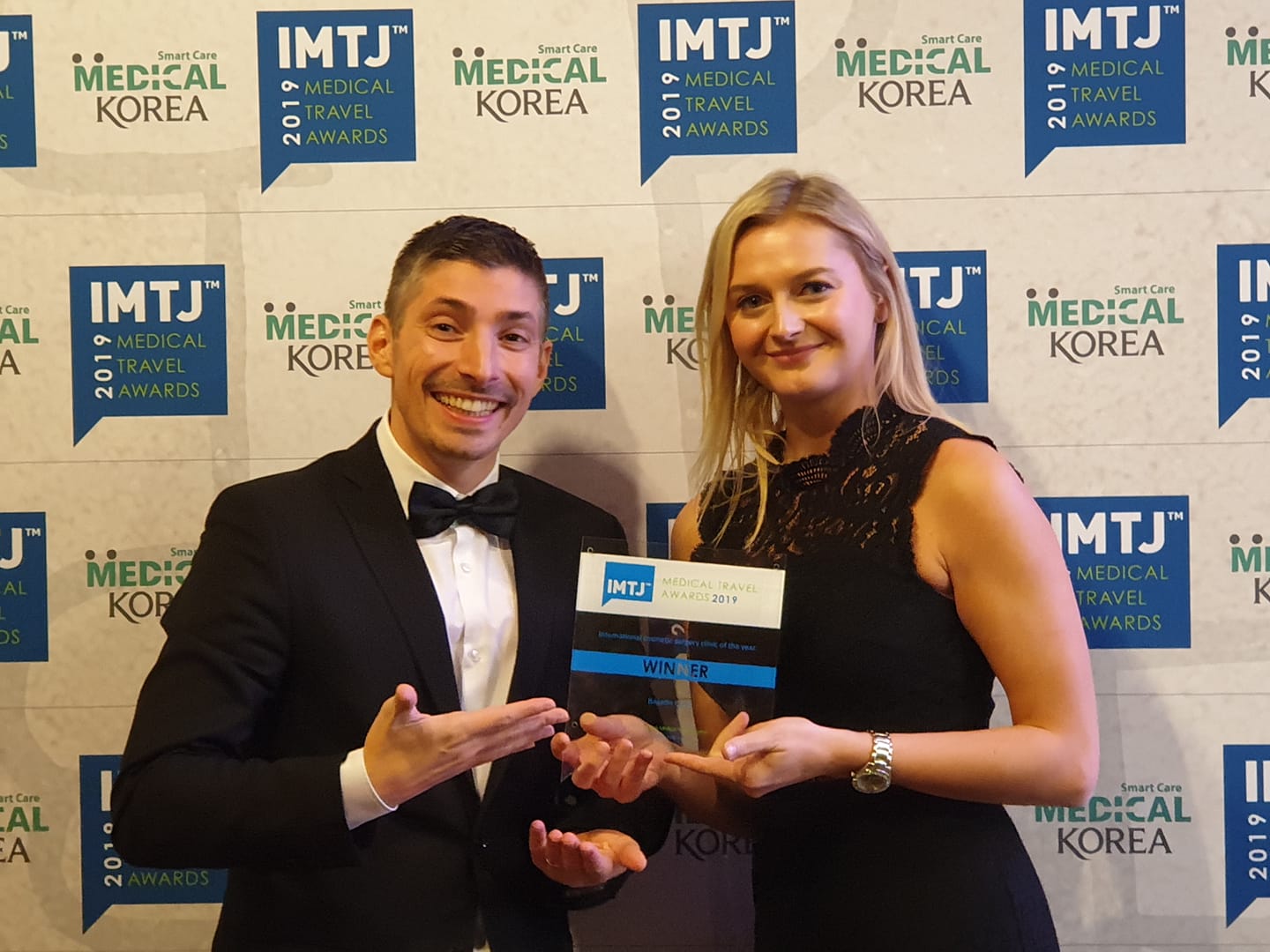
The success of St Catherine's (the first European partner for the Mayo Clinic co-sponsored OneOme pharmacogenetic RightMed test) and Bagatin has been a particular pleasure to watch - and it was an honour to be in Berlin earlier this month to see Ognjen pick up the International Medical Travel Journal 2019 International Cosmetic Surgery Clinic of the Year award for Bagatin Clinic.
Always an ambitious guy, I thought he had gone a little too far a few months ago when he showed me a flyer for a new conference his clinic was organising: EPIC 2020, the first European Patient Experience and Innovation Congress, to be held in Dubrovnik from March 19-21.
"We will have some really top guys, it will be quite a show and really put Croatia on the medical tourism map. You will see."
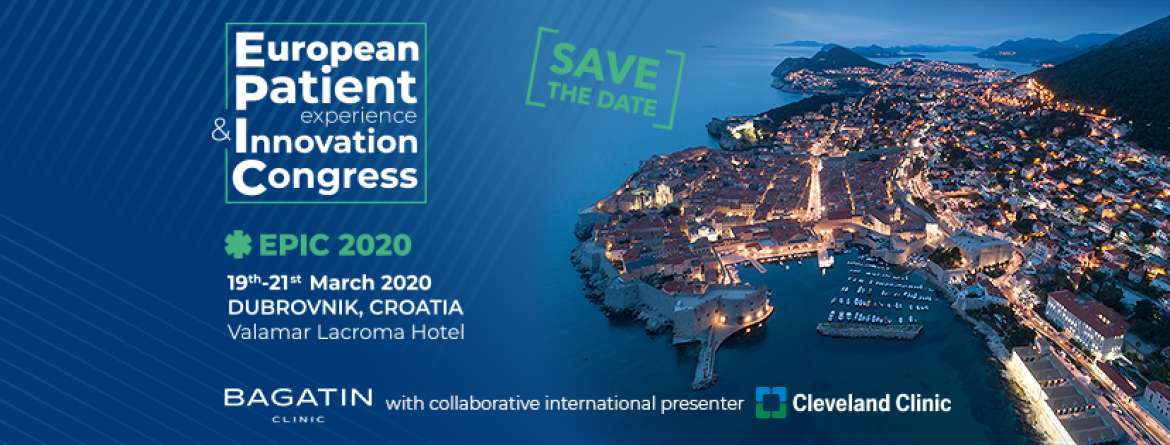
EPIC brings together some of the most influential physicians, MedTech startups and health professionals from Europe & beyond to the table to improve how your patients will experience healthcare in the near future.
As technology continues to help us achieve previously unattainable results in healthcare, join us for an insiders’ look at which technologies, ideas & innovations are improving the patient experience with some of the leading clinics & healthcare companies of the world so that you can stay ahead.
Bagatin has been true to his word, some REALLY top names are already confirmed as speakers at EPIC 2020. Three international speakers from EPIC 2020 collaborative international presenter, Cleveland Clinic, two from Mayo Clinic, the Disney Institute, the Editor-in-Chief of International Medical Travel Journal are already confirmed, with many more on the way. And then there are the video endorsements from supporters of the initiative who cannot make it.
A personal video message from Cleveland Clinic CEO and President Tom Mihaljevic! Mihaljevic is himself a Croat, and the Cleveland Clinic has been taking a more active interest in Croatia in recent years, following a visit to Cleveland by Bagatin in 2018, as Cleveland Clinic International Patient Experience Director Joe Sweet explained to me in an interview in Zagreb earlier this year.
And it was rather a pleasant surprise to find TCN nestled in the middle of the video with Mihaljevic's message.
To learn more about EPIC 2020, check out the official website.
To follow the latest from the Croatian medical tourism industry, follow the dedicated TCN section.

